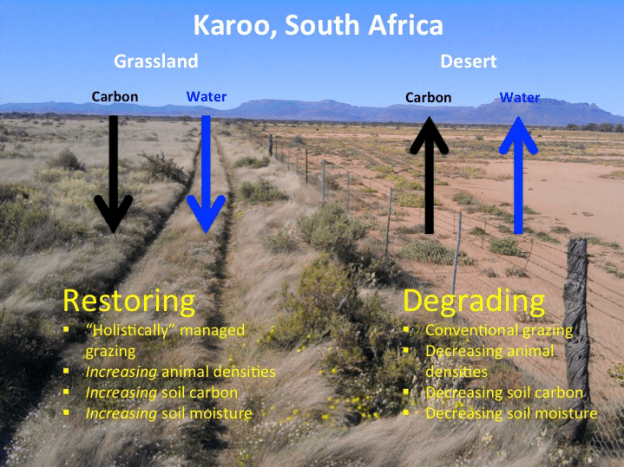Restoring Ecosystems to Reverse Global Warming, Washington, DC
Promoting the power of nature to remove excess carbon from the atmosphere where it does untold damage, and restore it to the soils where it supports abundant life and helps reverse global warming.
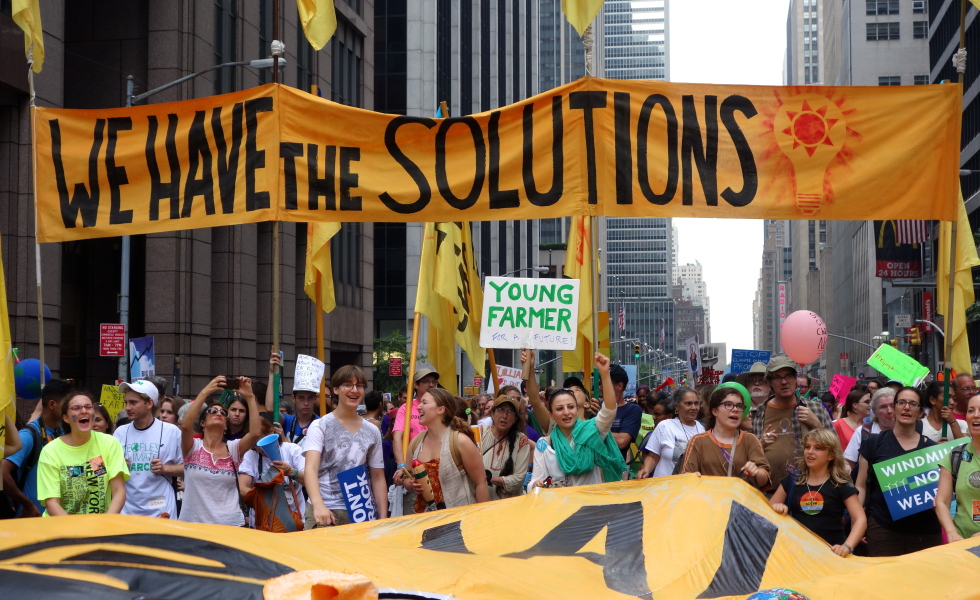
Source: http://bostongreenschools.org/
Saturday, September 26, 2015, 10:00 a.m. to 5:00 p.m.
Moot Court Room
David A. Clarke School of Law
University of the District of Columbia
4340 Connecticut Avenue Northwest
Washington, DC 20008
Sponsored by Moral Action on Climate, People Demanding Action,
and the University of the District of Columbia Law School
Thank you to all who participated in this extraordinary event! We’ve received many enthusiastic responses from conference attendees.
“It was an awesome conference!”
“Bravo on a conference well done! This most certainly has laid a very strong foundation for the longer program ahead!”
“Thank you for the inspired leadership in making this conference happen. I was thrilled to be part of it! There is a new sense of hope in me that we can actually make a difference!”
Program
Desired Outcomes:
- Introduce people to the new ideas that represent the other side of the CO2/Climate Equation – the biological “sink”
- Emphasize that the task is broader than just the atmospheric CO2. It is also about ecosystems and how humans can partner with Nature
- We want people to meet each other and become part of a WDC area community working together (scientists, students, activists, farmers, policymakers, thought leaders) to promote these ideas
- Leave the conference inspired with hope and with ideas for how to take action
Outline of the Conference:
- Welcome and Overview
- The Science of ecosystem restoration to sequester carbon
- Land Management to restore soil fertility, produce nutritious food, and increase soil carbon
- Restoring Water Cycles to reduce droughts and flooding and to cool the planet
- Local Connections
- Activism / Taking it Home
The general format is 20 minutes of speaking & 10 minutes of Q&A per each 30 minute session, with some deviations here and there. Our speakers will be sharing a lot of new information and our format will limit their ability to go into much depth. Please understand when the ticking clock means we need to go on to the next speaker. We hope the new ideas inspire you to learn more on your own.
10 – 10:30 am – Session 1: Welcome and an Overview of the New Climate Paradigm
Philip Bogdonoff, Biodiversity for a Livable Climate– Welcome & Logistics
Joe Libertelli, UDC David A. Clarke School of Law, Director of Alumni Affairs – Welcome
Adam Sacks, Biodiversity for a Livable Climate – The Other Side of the Climate Change Equation
Meet the organizers and sponsors of the conference, with an overview of the day, learn what to expect and what we hope will happen next in the soil carbon and climate endeavor. This conference is an important step on an urgent yet remarkable and rewarding journey. You are all a central part of this as-yet unwritten saga to address the intertwined issues of habitat loss and climate change.
10:30 – 11 am – Session 2: State of the World
Dr. Leah Rampy, Climate Leadership Project
To allow us all to have a basic reference point about the state of the world’s climate, Dr. Leah Rampy will provide, by way of excerpts from the slides provided by Al Gore’s Climate Reality Project, a recap of where we are and the most recent signs that our planet is warming.
Q&A [10 minutes]
11 – 11:30 am – Session 3: The Amazing Power of Nature:
Sequestering Carbon through Ecosystem Restoration
Jim Laurie, Restoration Ecologist, Biodiversity for a Livable Climate
Bringing degraded lands back to life may be easier and faster than we generally think. Mostly it has to do with us humans helping by restoring keystone species that we previously destroyed. We already know how to do this: using low- or no-tech approaches, restoration ecologist Jim Laurie has seen rapid and dramatic restoration unfold more times than he can count – and he’s amazed every single time. He’s happy to share his insights and inspirations with us.
Q&A [10 minutes]
11:30 – 11:45 am – COFFEE BREAK
11:45 am – 12:15 pm – Session 4: Nutritious Food Starts in the Soil
Dan Kittredge, Bionutrient Food Association
Everything we eat depends on the health of the soil. When essential minerals are missing from the soil, they’re missing from the plants and animals that feed us. Our health suffers and disease can run rampant, common consequences of industrial agricultural practices. Dan Kittredge, lifelong farmer and nutrition expert, explains how it works and how we can bring new life to our soils, to biodiversity on planet earth, and to ourselves.
Q&A [10 minutes]
12:15 pm – 12:45 pm – Session 5: Holistic Management in Practice: The Ecological, Economic, and Social Benefits
Precious Phiri, Founding Director, EarthWisdom Consulting Company
Precious Phiri directs engagement and training for villages in the Hwange Communal Landsregion that are implementing restorative grazing programs using Holistic Land and Livestock Management in Zimbabwe. This cost-effective, nature-based and highly scalable solution helps rural communities in Africa to reduce poverty, rebuild soils, restore food and water security, and reduce drought and flood risks. Precious was born and raised in one of these communities now implementing restorative grazing.
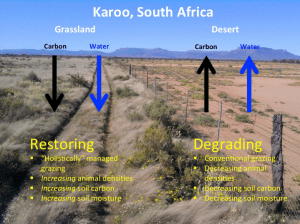
12:45 – 1:45 pm – LUNCH
Bring your own brown-bag lunch or go out to local restaurants.
1:45 – 1:50 pm – Recap and a few thoughts
Adam Sacks, Executive Director, Biodiversity for a Livable Climate
1:50 – 2:30 pm – Session 6: Washington DC Regional Carbon Farming (Panel)
Hear from the experience of local farmers about what works and doesn’t and their suggestions for increasing and improving soil carbon farming in this region. Which of the previously-mentioned methods is applicable to our moister climate? What is the most effective way to sequester carbon in the soil? What are the main obstacles each of you needs to overcome? What needs to change in the buying public’s mind and in our regulatory environment to facilitate the growth of soil carbon farming here?
Moderator: Annita Seckinger
1:50 – 1:57 pm Greg Glenn, farm manager, Rocklands Farm – www.rocklandsfarmmd.com/
Greg will share how their holistic agriculture strategy balances economic, social and environmental elements through an ecosystem-management approach, and how they use rotational grazing to regenerate the soil.
1:57 – 2:04 pm Nick Maravell, owner, Nick’s Organic Farm – www.nicksorganicfarm.com/
Nick grows corn, soybeans, barley, and hay; raises chickens and cattle and sells grass-fed meat. He calls himself a “carbon farmer” and says his system is similar to the “English ley” and is adapted to our region’s climate. He will provide his perspective on local farming challenges, the role of small-scale solutions, and the opportunities that exist to get local buy-in for a more closely-knit regional food system, including closing nutrient cycles.
2:04 – 2:11 pm Will Mitchell, Founder, Tenleytown Meat Company – www.tenleytownmeatcompany.com/
After years of being a vegetarian, Will came to understand the importance of animals on the land. He spent a summer on a farm near St. Mary’s City, Md. near Chesapeake Bay, and came home to DC to found Tenleytown Meat to help that farms and other to be able to sustain their wholistic farming practices and offer their healthy food to urban consumers. He says “We care about responsibly growing our company and developing our brand for we believe our presence will be a benefit for the region and its people. The farmers we support use practices that are helping to reverse the trends of our industrial food system. We partner with farms that are centered on healthy animals, clean air, water, and land, that are managed with integrity, and are not blinded by the bottom line.”
2:11 – 2:18 pm Che Axum, Director of the Center for Urban Agriculture and Gardening Education in the College of Agriculture Urban Sustainability and Environmental Sciences (CAUSES) at UDC – http://www.udc.edu/college_urban_agriculture_and_environmental_studies/welcome
In addition to being a native Washingtonian, Che is a third generation farmer. In 1918 after relocating to Washington, D.C. from Alabama, Mr. Axum’s paternal great-great-grandfather started farming in the northeast section of the city. Additionally, his maternal great-grandfather was an established farmer in Mitchellville, Maryland. He will share his perspective on this legacy of farming in the region and what direction it could go in the future, and what needs to done to help get it there.
Q & A [10 minutes]
Jim Laurie, Restoration Ecologist, Biodiversity for a Livable Climate
This session is designed to give a taste of the theme of the next Tufts conference, “Restoring Water Cycles to Reverse Global Warming”, i.e, what we are learning very recently from the work of people like Michael Kravcik about the importance of managing not only for carbon, but also for water (they are closely linked), and the potential of water cycles around the world to help humanity cool the earth in the short term, perhaps giving us some additional time to extract the CO2 from the atmosphere. Jim will also report on the remarkable recovery of the Susie Creek ecosystem in the U.S.’s driest state, Nevada, due to the activities of beavers.

Q&A [10 minutes]
3:00 – 3:30 pm – Session 8: Community Scale Solutions – from Beavers to Biochar (Panel)
We’ll survey a few of the many methods and opportunities for individuals, businesses and new entrepreneurs to contribute to the abundance and self-sufficiency possible through eco-restoration and carbon farming. Endeavors that work with nature are virtually endless, and may include composting, mulch, materials recycling, food production, biogas digestion, organic and solar-driven land care, biochar, soil testing, rock powders, microbial soil treatments, innovative gardening, small farm animals – and more. Learning about these opportunities is the beginning to partnerships to support urban and suburban agriculture and associated services such as business incubators for positive local economic development – and contribute to growing global efforts to reverse global warming, in ways that only nature can!
3:00 – 3:04 pm Moderator: Gina Angiola – Gina will touch on remineralization and Organic Farming 2.0
3:04 – 3:11 pm Biochar – Adam Sacks, Biodiversity for a Livable Climate – www.bio4climate.org
3:11 – 3:18 Compost – Fritz Gottschalk, Veteran Compost – www.veterancompost.com/
3:18 – 3:25 Permaculture / Restoration Agriculture – Lincoln Smith, Forested – http://forested.us/
3:30 – 3:45 pm — COFFEE BREAK
3:45 – 4:15 pm – Session 9: Taking it Home / Action Steps
Larry Kopald, Co-Founder and President of The Carbon Underground [20 minutes]
Advertising professional and environmentalist Larry Kopald views the nature of the paradigm shift that global warming forces us to face. He will review the issues that give us the best leverage moving forward, and will address the human social phenomenon of marketplaces. Stripped to its basics, a marketplace is people having relationships with other people. How can we optimize our use of the marketplace for messages about climate and soils, and move to action on reversing the course of climate.
Q&A [10 minutes]
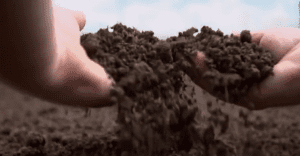
4:15 – 5:00 pm – Conclusion: Regional, National, and World Action: Paris COP-21 and Beyond
Legislative Action in the US – Sudheer Shukla will discuss the Citizen Climate Lobby’s Carbon Fee & Dividend proposal — the current status of this proposal and its possible expansion to include soil carbon farming.
Young Leaders – What Do We Need to Accomplish at the Paris COP21 Meetings?
Anthony Torres, COP21 Delegate, SustainUS Media Team; Class of 2015, Leadership Program, School of Public Affairs, American University
Climate and Regenerative Organic Agriculture: How to Build a Mass Movement
Alexis Baden-Mayer, Political Director, Organic Consumers Association,
Q&A [10 minutes]
5:00 – 5:15 pm – Fare well and stay in touch!
- Thank you to all of our volunteers, UDC Law School for hosting us, to our speakers, funders, partners People Demanding Action and Moral Action on Climate, and to all you participants!
- Next conference at Tufts: Restoring Water Cycles to Reverse Global Warming, Oct. 16-18, 2015
- Stay tuned for a 2-3 day conference in DC in 2016 – and let us know if you want to help
- How to stay in touch: DC contacts (Philip – philip.bogdonoff@bio4climate.org, Sudheer – sudheerpshukla@yahoo.com), BLC-DC@googlegroups.com, bio4climate.org/
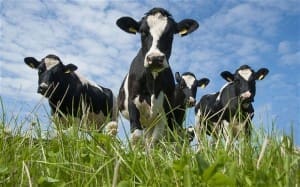
Speakers
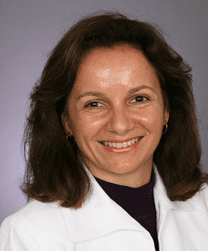
Gina Angiola, MD – Retired physician, Board member of Chesapeake Physicians for Social Responsibility, Member, Biodiversity for a Livable Climate, lifelong advocate for healthy environments. As a climate activist for over 12 years and a member of many large environmental organizations, most of her advocacy and action has focused on reducing emissions from the energy sector and from conventional food production. She now recognizes the urgent need to add ecological restoration and enhancement of carbon sinks to the agenda if we hope to re-establish a stable climate system and a livable planet for future generations.
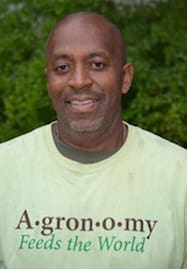
Mchezaji “Che” Axum is the Director of the CAUSES Center for Urban Agriculture. He is a trained environmental agronomist with over 25 years of experience in agriculture. He leads a team of Researchers at the Muirkirk Research Farm in Beltsville, Maryland, and oversees the University’s DC Master Gardener, Specialty/Ethnic Crops and Urban Agriculture certificate programs. Read about Che on the UDC website and on the UDC Just CAUSES Blog.
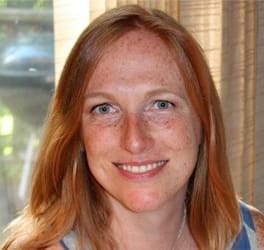
Alexis Baden-Mayer, Esq., Political Director, Organic Consumers Association. The Organic Consumers Association (OCA) is an online and grassroots non-profit 501(c)3 public interest organization campaigning for health, justice, and sustainability. The OCA deals with crucial issues of food safety, industrial agriculture, genetic engineering, children’s health, corporate accountability, Fair Trade, environmental sustainability and other key topics. www.organicconsumers.org/
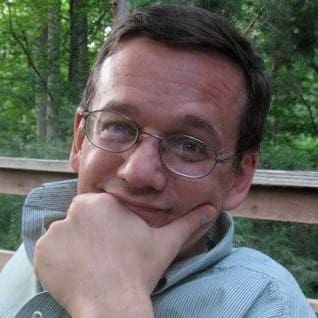
Philip Bogdonoff, Director, Washington DC Chapter, Biodiversity for a Livable Climate. Past trustee and board chair, Friends Community School; Co-founder, Sustainable Washington Alliance; Vice President, Millennium Institute; Consultant, World Bank Environment Department; Research Assistant, Section of Ecology and Systematics, Cornell University. He and Jim Laurie constructed Washington, DC’s first “Living Machine” more than 15 years ago.
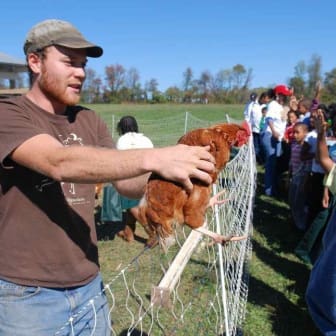
Greg Glenn, Farm Manager, Rockland Farms (Poolesville, MD). During his time at Virginia Tech, Greg developed a passion for farming and local food systems. He studied small business agriculture and regional food systems, was actively involved in the local food system in Blacksburg, VA, and spent time in Kenya and South Africa where he became fascinated with holistic agriculture. After graduating with a degree in Agriculture Economics, he worked and trained in various social programs for resettled refugee training, and took the first steps to begin what would become Rocklands Farm. Rocklands Farm cultivates a bountiful harvest through an ecosystem-management approach to agriculture, utilizing multi-species rotational grazing as the centerpiece for soil regeneration. Rocklands hosts tours for people to gain insight into the dynamic complexities of a farm ecosystem, it’s wider effect on the environment, and how your food choices shape the future. Rocklands has an on-farm market for people to enjoy the bounty of the farm’s harvest, including meats, produce and wine produced at Rocklands.
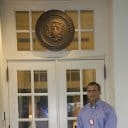
Fritz Gottschalk is a recently retired Army Veteran who served for 25 years in a variety of military operations, focusing mostly on working with foreign militaries. He served in Afghanistan and Iraq, as well as Panama, Haiti and throughout Western Africa. After leaving the military, he became a Maryland State Certified Compost Facility Operator and has worked with Veteran Compost in the DC Metropolitan area. His current position is in sales, research and operational development, as well as making organic compost. In addition, Fritz has begun to work on a Masters Degree in Environmental Resource Policy at George Washington University. www.veterancompost.com/
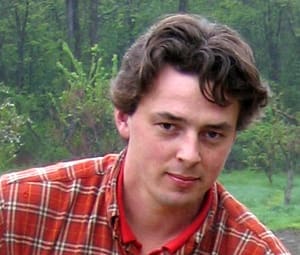
Dan Kittredge is a life-long farmer and founder of the Bionutrient Food Association. He launched The Real Food Campaign (RFC) in 2008, to empower and educate farmers towards the production of quality food for the improvement of human health. In 2008 and 2009 RFC made major strides in developing a cohesive local, national and global vision, and networked nationally to build the base to implement its mission. Under Dan’s leadership in 2009-2010 RFC began holding yearlong courses on Nutrient Dense Crop Production and building a professional team of staff.
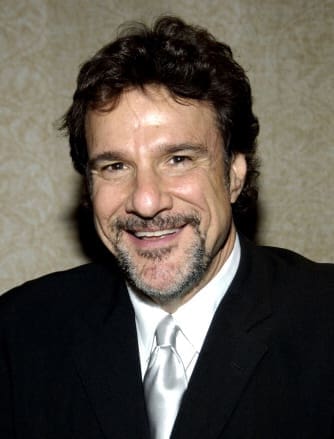
Larry Kopald has been a communications and branding professional for over twenty-five years, working at some of the world’s top advertising agencies. He has overseen the advertising for brands ranging from McDonalds to American Express to Honda, and has helped launch multibillion-dollar brands like Acura, Oracle, and Huggies. Larry has also been a lifelong environmentalist serving on boards like Oceana, the National Marine Sanctuaries, 1% For The Planet and others. He has done the environmental communications for the UN and the Olympics, and his work for the Earth Communications Office was seen in over 100 countries by over a billion people. Larry has been nominated for both Emmy and Grammy awards. He is Co-Founder and President of The Carbon Underground.
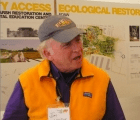
Jim Laurie, Restoration Ecologist at Biodiversity for a Livable Climate, is a biologist from Rice University and is a pioneer in biological remediation of waste water. He was the technical manager of the world’s largest “Living Machine” project to clean raw municipal sewage with no toxic chemicals. The facility, through a grant from the EPA, processed 80,000 gallons/day using the “living machine” methodology invented by ecological visionary, and Buckminster Fuller Award recipient, John Todd. Prior to that, for twenty years Jim was a biologist and trainer in the chemical industry in Houston, TX, where his work with living machines resulted in processing effluent cleaner than possible with conventional technology. Jim has also been a passionate advocate for Holistic Management of grasslands in the past decade. He began studying with Allan Savory twenty years ago in Texas, has spoken about Holistic Management at Harvard, MIT, Tufts, the Stockholm Environment Institute, and at meetings of the Massachusetts Climate Action Network (MCAN) and Northeast Organic Farmers Association (NOFA), and has been instrumental in spreading the message in New England. Jim is also co-founder of a lively and sophisticated Google Group, Soil-Age, and he invites you to join!
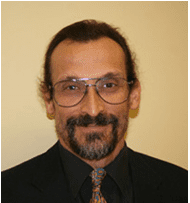
Joe Libertelli directs Alumni Affairs, and helps coordinate public relations for the School of Law. He earned his B.A. from Princeton University and J.D. from Antioch School of Law. He has been Executive Director of Metro D.C. Environmental Network, and is a co-founder of the Gibson Hollow Limited Liability Company, which runs a cooperative ecological mountain retreat in the Shenandoah Mountains. He is a member of the D.C. School of Law Foundation, and was a founding National Advisory Board Member of the Progressive Democrats of America. http://www.law.udc.edu/staff/details.asp?id=10284
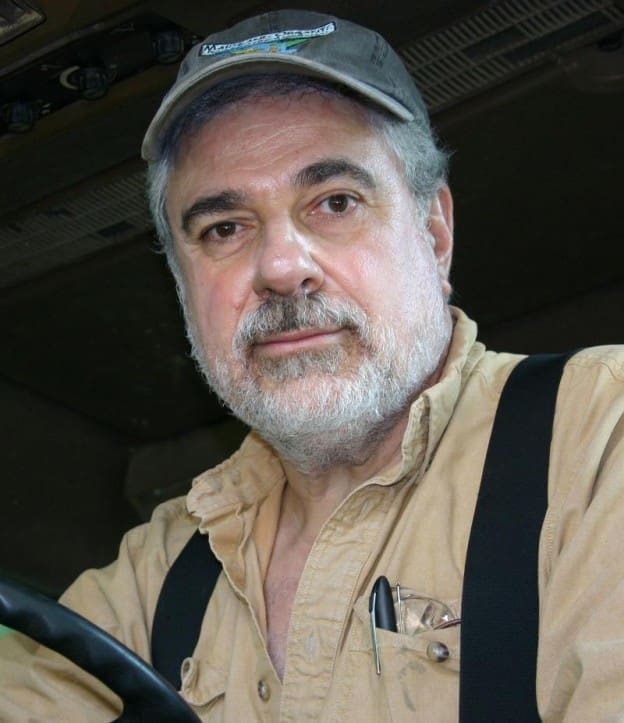
Nick Maravell, Owner of Nick’s Organic Farm. Nick has been farming organically for more than 40 years. After experimenting for several years, he started farming on a commercial basis in Purceville, Virginia in 1979. Concerned about the soil, environment, energy conservation, and fresh, local, healthy food, he began by selling vegetables to restaurants and local food co-ops, and at farmers markets. In 1980, he moved his vegetable operation to leased land in Potomac, MD. In the mid-90s, Nick and his wife, artist Tory Cowles, purchased a 165-acre farm in Buckeystown, near Frederick MD, while continuing operations in Potomac until 2012.
Nick’s Organic Farm uses a diversified organic farming system that combines plants and animals. Nick sells directly to consumers, other farms and a few retailers and restaurants. Various on-farm value-added activities include processing organic chickens and turkeys, grinding organic livestock feeds and cleaning and conditioning GMO free organic seed. The farm’s livestock products include 100% grass-fed Angus beef, sausages, jerky, pastured chickens and turkeys, free-range eggs and honey. The farm’s crop products include heirloom food-grade grinding corn and popcorn, fresh soybeans (edamame), ground poultry feeds, heirloom GMO free soybean seed and corn seed, small grain and cover crop seed, alfalfa and grass hays, straw and field crops such as corn, soybeans, barley, rye, and hairy vetch.
Committed to developing local and regional food systems, Nick has helped establish and operate several farmer cooperatives. He is also active in many local, state and national organizations dedicated to organic and sustainable agriculture. He is a founding member of the Maryland Organic Food and Farming Association (MOFFA), the Maryland Small Farm Cooperative, and Future Harvest-Chesapeake Alliance for Sustainable Agriculture (Future Harvest-CASA). Nick has also worked closely with other farmers and scientists at the Organic Farming Research Foundation to publish the National Organic Research Agenda. www.nicksorganicfarm.com/
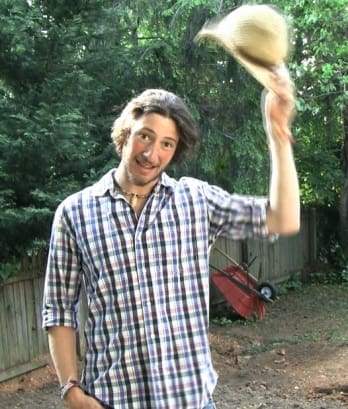
Will Mitchell, Founder of Tenleytown Meat Company. Tenleytown Meat Company was founded to effectively connect responsible local farms with DC area residents seeking a change to our modern food system. Tenleytown Meat Company is a small distribution service helping to build a sustainable market of holistically managed, pasture-raised meat for DC area farmers, processors, and eaters. www.tenleytownmeatcompany.com/
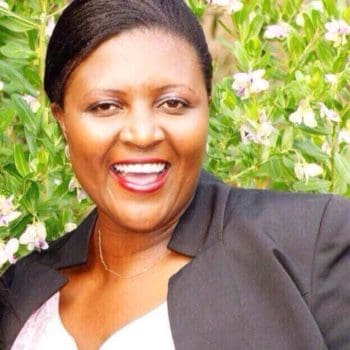
Precious Phiri is the Founding Director of EarthWisdom Consulting Company. She was formerly a Senior Facilitator at the Africa Center for Holistic Management (ACHM) in Zimbabwe where she directed training for villages in the Hwange Communal Lands region that are implementing restorative grazing programs using Holistic Land and Livestock Management. She helps rural communities in Africa to reduce poverty, rebuild soils, and restore food and water security. This nature-based solution has been successfully used on different landscapes in Africa and the Americas. Precious was born and raised in one of the communities now implementing restorative grazing.
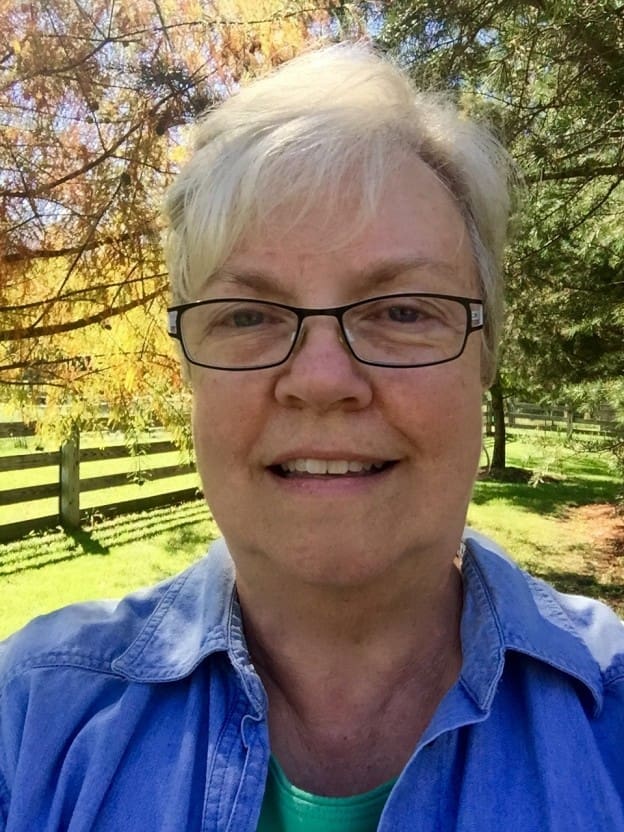
Leah Rampy, Ph.D. is a member of the Climate Reality Leadership Corps, a group of activists trained by Al Gore and committed to telling the story of climate change to inspire action. Frequently joined by her daughter Ana, Leah has presented to numerous religious groups, students, and non-profits. Leah’s career spans executive leadership positions in Fortune 50 companies, a decade running her own business focusing on executive coaching and leadership consulting, and service as Executive Director in a small non-profit. Currently she and her husband David are working on a permaculture design for their eight-acre farm in the Shenandoah Valley.
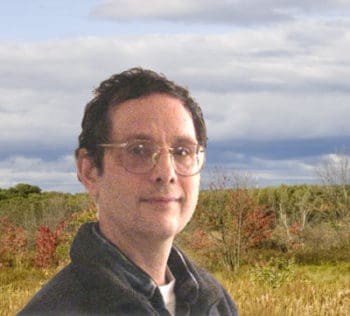
Adam Sacks is executive director of Biodiversity for a Livable Climate. He has had careers in education, holistic medicine, computer technology, politics, and advocacy. A climate activist for the past 15 years, he has been studying and writing about Holistic Management since 2007. His primary goal is regeneration of biodiversity and a livable planet.
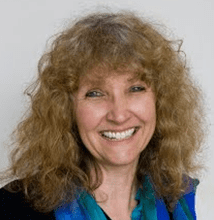
Annita Seckinger is a soils and water scientist who works as a consultant for a range of organizations. She is also the founder and president of the Watts Branch Watershed Alliance, an organization dedicated to the preservation and restoration of the Watts Branch Watershed in Montgomery Country, Maryland. Annita and Dr. Ray Weil are currently collaborating on projects that deal with soils, health, restoration and reforestation in an indigenous community in northern Mexico.
Additionally, Annita has worked with children – both domestically and abroad – on issues pertaining to health and nutrition.For more than ten years she has worked to bring healthy, locally sourced food back to Maryland’s elementary, middle and high schools; concurrently, she has stressed the importance of an environmental education for young people of all age groups. Annita holds degrees from the University of Maryland and the Blekinge Institute of Technology in Karlskrona, Sweden.

Sudheer Shukla, Biodiversity for a Livable Climate outreach coordinator and DC Area Maryland Coordinator at Climate Change is Elementary, which leads climate awareness activities for elementary school students and their families. Sudheer is also involved with Citizens Climate Lobby.

Lincoln Smith runs Forested.us, a 10-acre forest garden research site in Bowie, MD. He teaches or co-teaches all courses at Forested, and designs forest gardens. He is passionate about production ecosystems, and brings a background in agronomic science and sustainable landscape design. Lincoln started Forested, LLC to develop and share research in forest gardening. He is a regular speaker on forest gardening at venues such as University of Maryland, the U.S. Botanic Garden, and the Maryland Master Gardeners’ Conference. Lincoln spent 5 years in a high-end residential landscape architecture office, designing managing installation of big budget landscapes, and pushing sustainability. He holds a Master of Arts in Landscape Design from the Conway School, and earned LEED certification in 2008. He is working on making and marketing acorn foods. http://forested.us/
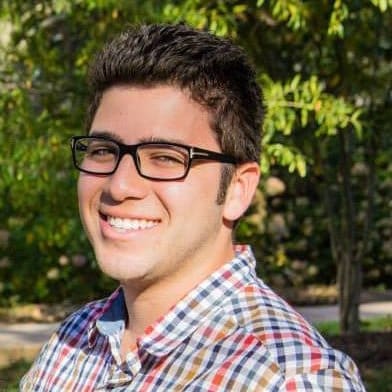
Anthony Torres, is a member of the Class of 2015, Leadership Program, School of Public Affairs, American University. He is pursuing a dual degree in political science and environmental studies with a focus on the intersections of social inequality and climate change. At AU, he has served as an organizer for his campus divestment campaign and is currently the Student Co-Director of the SPA Leadership Program.
In addition to his work on the COP21 Delegation, Anthony has been involved with coastal restoration and resiliency on Long Island, advocacy for organizations like the NY League of Conservation Voters, and projects aimed at encouraging positive social transformation with frontline communities in North India and the Ecuadorian Amazon.
After graduation, Anthony plans to promote just climate policies for communities of color at the national and international level. He is one of 23 US youth delegates SustainUS is sending to Paris for the 21st Session of the Conference of Parties (COP21) of the United Nations Framework Convention on Climate Change (UNFCCC). SustainUS delegates work alongside government officials, civil society representatives, and youth from around the world while organizing direct actions, media outreach, and policy advocacy.
—————————————————————————————————-
We would like to express a big THANK YOU! to our Partners and Co-Sponsors:
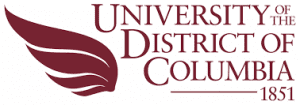
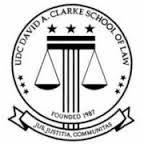


Other Upcoming Events
Restoring Water Cycles to Reverse Global Warming at Tufts University in October, 2015.

